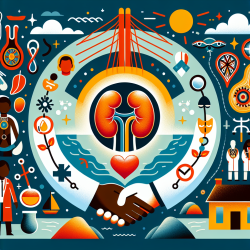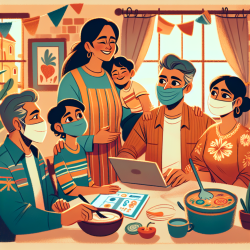Introduction
In the realm of healthcare, the need for culturally competent and inclusive care models is paramount. The program report titled "Nîsohkamâtowak—Helping Patients and Families Living With Kidney Disease in Northern Saskatchewan" highlights a pioneering initiative aimed at addressing the unique healthcare needs of First Nations and Métis communities in northern Saskatchewan. This initiative, rooted in collaboration and cultural sensitivity, offers valuable insights for practitioners seeking to enhance their skills and improve patient outcomes.
The Nîsohkamâtowak Initiative
Nîsohkamâtowak, meaning "Helping Each Other" in Cree, is a collaborative effort between the Kidney Health Community Program and First Nations and Métis Health Services. The program aims to close gaps in kidney healthcare by integrating traditional Indigenous protocols and storytelling into healthcare delivery. This initiative is a response to the Truth and Reconciliation Commission of Canada's Calls to Action, specifically focusing on improving health outcomes for Indigenous communities.
Key Findings and Objectives
The Nîsohkamâtowak initiative identified several key areas for improvement in kidney care:
- Education: Providing culturally appropriate education and resources for patients, families, and communities.
- Community Support: Strengthening connections to local communities and health authorities.
- Traditional Practices: Incorporating traditional practices into program design and delivery.
- Service Delivery: Ensuring appropriate services across the spectrum of care, with a focus on screening and referral.
These objectives were co-created with First Nations and Métis patients, families, and communities, emphasizing the importance of cultural competency and respect for traditional knowledge.
Implications for Practitioners
For practitioners, the Nîsohkamâtowak initiative offers several actionable insights:
- Engage in Cultural Competency Training: Healthcare professionals should seek training opportunities to better understand and respect Indigenous cultures and practices.
- Incorporate Traditional Practices: Consider integrating traditional healing practices alongside Western medicine to provide holistic care.
- Foster Community Partnerships: Build strong relationships with Indigenous communities to ensure healthcare delivery is culturally sensitive and responsive to community needs.
- Prioritize Patient-Centered Care: Empower patients to guide their own care and actively listen to their needs and preferences.
Encouraging Further Research
The Nîsohkamâtowak initiative underscores the importance of ongoing research and collaboration in healthcare. Practitioners are encouraged to engage in further research to explore innovative solutions for culturally tailored care models. By partnering with Indigenous communities, healthcare providers can continue to learn and adapt their practices to better serve diverse populations.
Conclusion
The Nîsohkamâtowak initiative serves as a beacon of hope and inspiration for healthcare practitioners committed to improving outcomes for Indigenous communities. By embracing cultural competency, fostering collaboration, and honoring traditional practices, we can work together to close the gaps in kidney care and promote health equity for all.
To read the original research paper, please follow this link: Program Report: Nîsohkamâtowak—Helping Patients and Families Living With Kidney Disease in Northern Saskatchewan.










